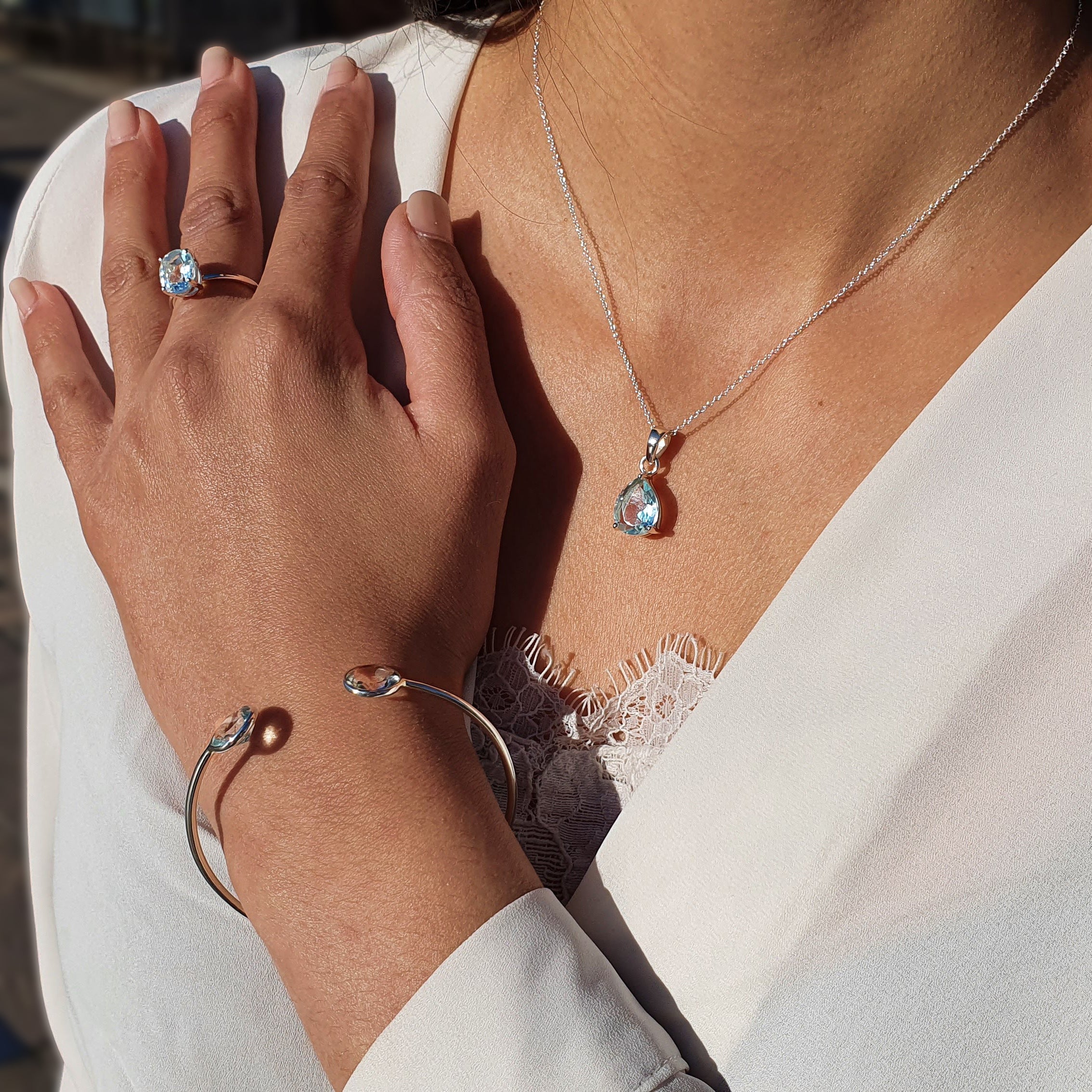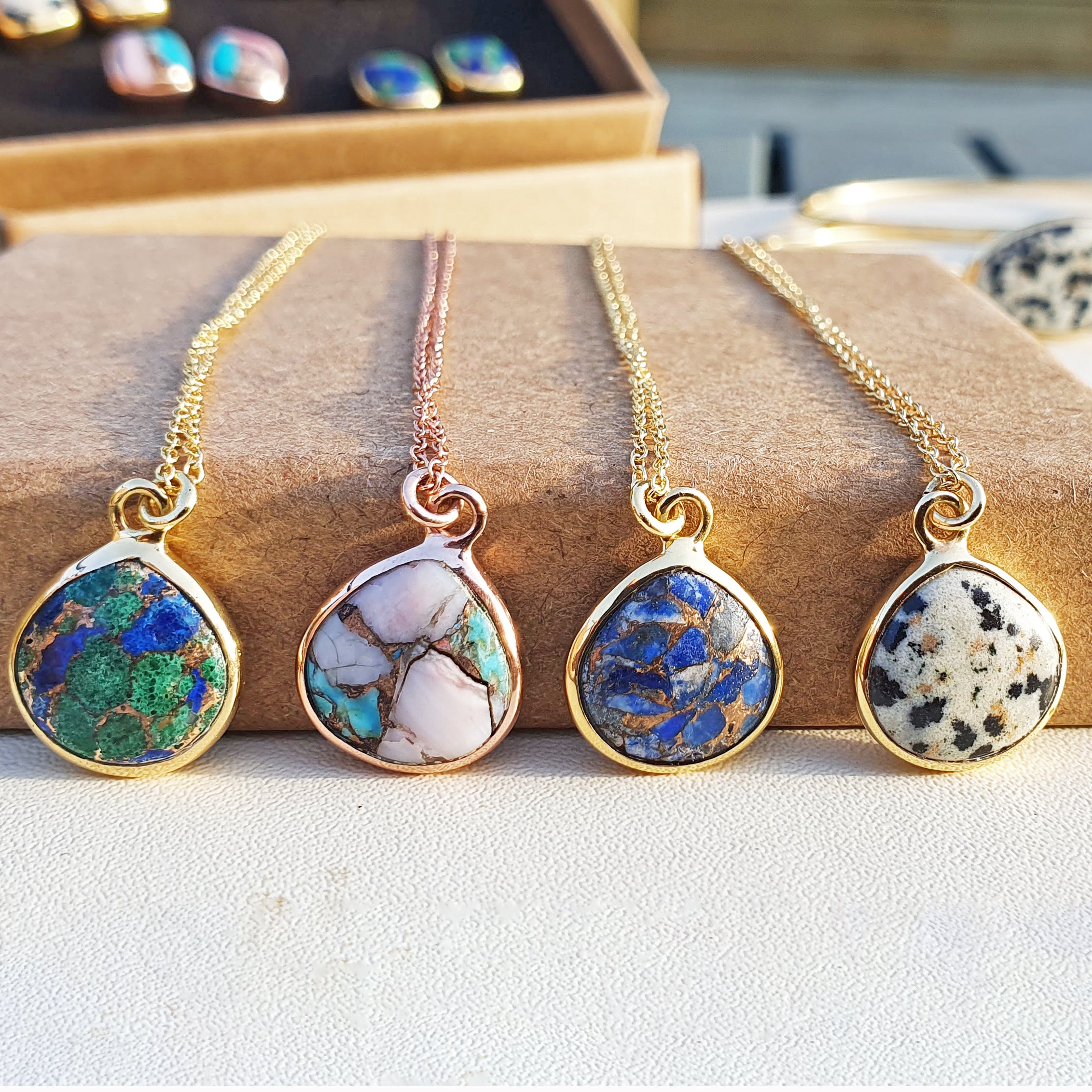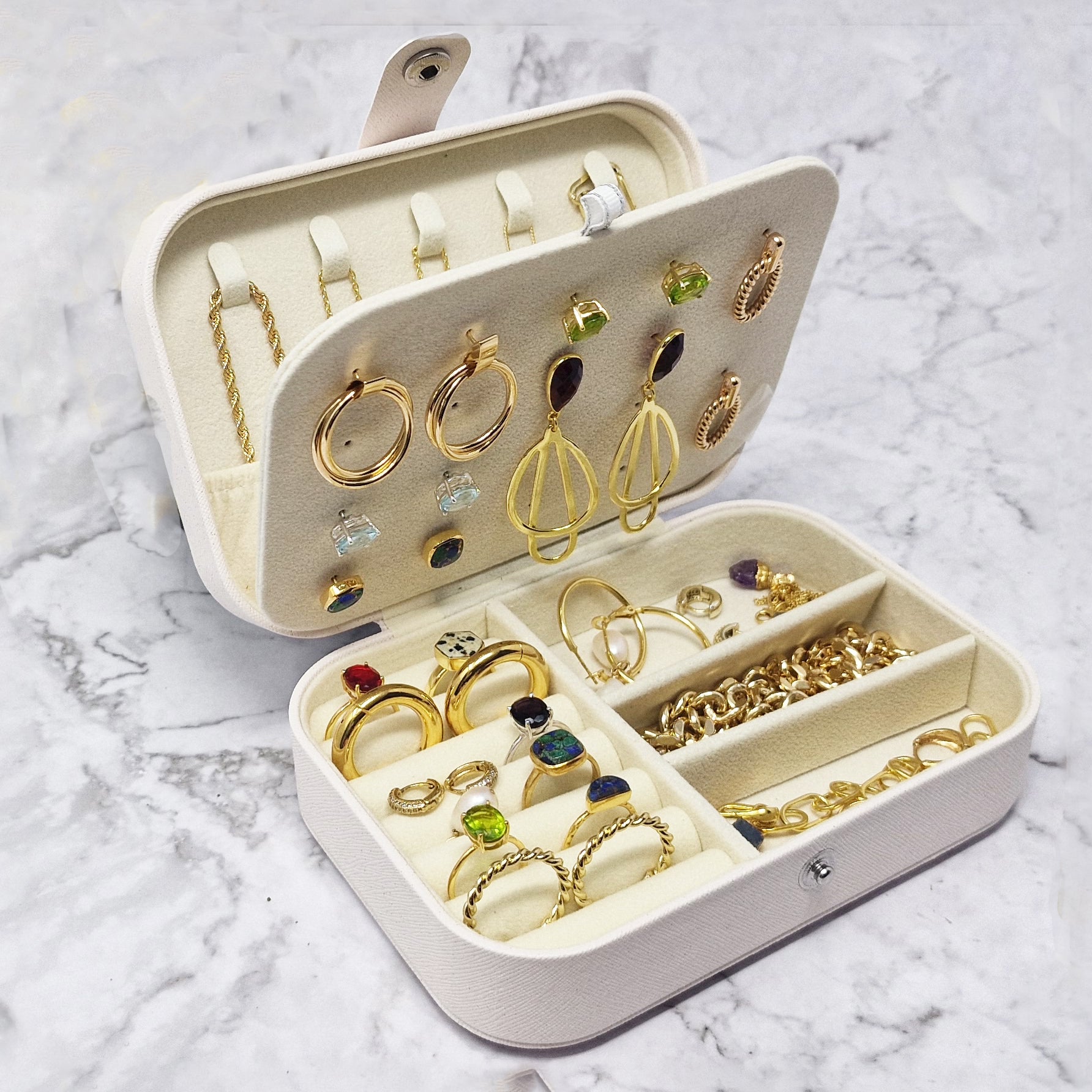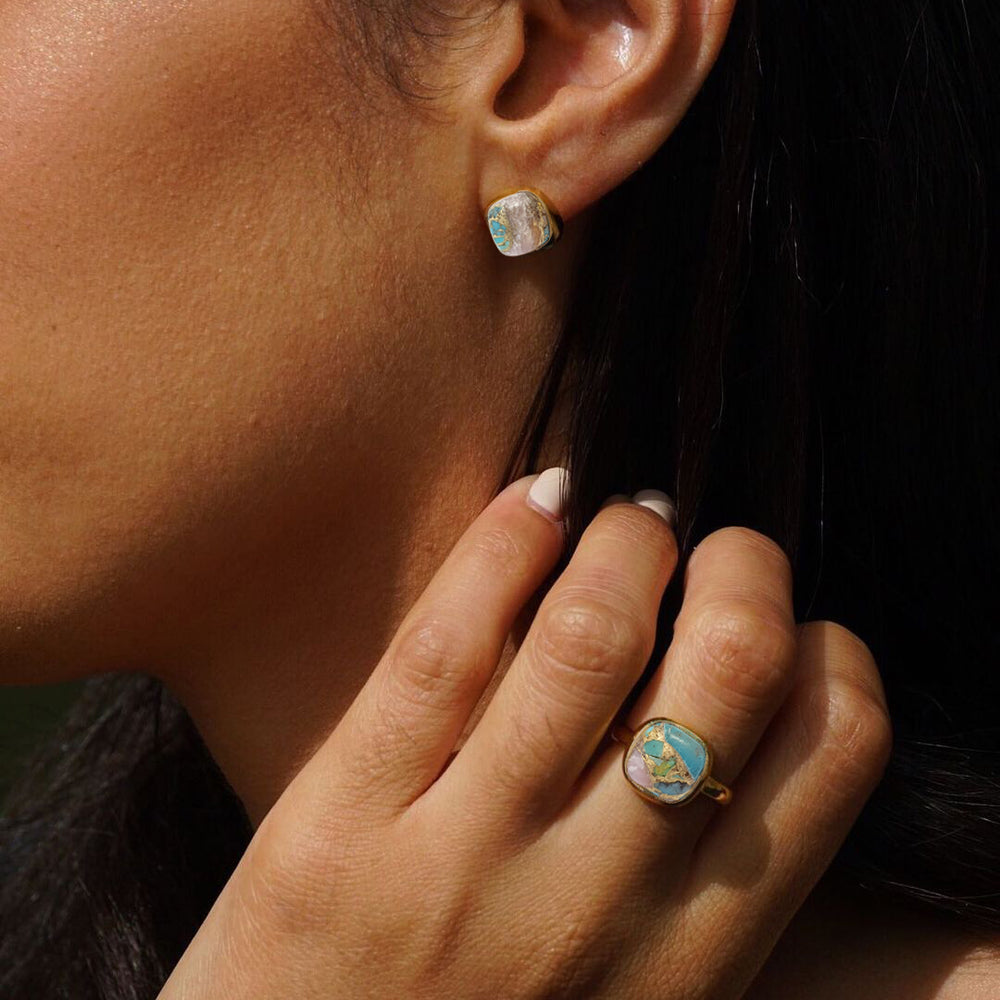Your Ethical Lockdown Guide
Jemma Finch: Co-founder of Stories Behind Things

"I co founded Stories Behind Things as a journey into reconnecting with the story behind what we consume on a daily basis. We celebrate the story behind products that prioritise the planet and the people on it. What started as a passion project quickly turned into a hub for sustainable offline events and an online community inspiration on how to live a more mindful life."
Her top tip:
My tip is to reconnect with your wardrobe. Start by reorganising your wardrobe by making piles of what you love and another pile of things you want to fall back in love with. Use your free time to get creative! For example an old pair of jeans that needs to be re-injected with love: Embroider into them, cut jeans into shorts or bleach them - upcycling your clothing is a great mindful way to reconnect with your wardrobe in a planet friendly way.
Where can you find her?
Instagram: @storiesbehindthings
Website: StoriesBehindThings
Talia Woodin

Location: London, UK
"After moving to London in 2018 to study Anthropology at university, I very quickly became involved with Extinction Rebellion and the growing climate justice movement, which I then chose to drop out of uni to work full time for, after a few months. Both my parents had been environmental activists and Green Party politicians throughout my childhood and so this work was already very familiar to me. I had been raised very conscious of the impacts of our consumption, amongst the many other ways in which our behaviours in the Global North affect both the environment and global populations.
My family made many lifestyle choices based on this, one of those including the clothes that we bought. Hand-me-downs, second hand and occasionally new, but ethically sourced clothing, made up the majority of our wardrobes. I always say that my first real act of rebellion was buying clothes from Primark as a pre-teen, something which greatly went against the morals I was raised with. Now, as a young adult, I have gone full circle and now only buy second hand clothes if anything."
Her top tip:
I believe that when it comes to being more sustainable and ethical in our consumption, both whilst in lockdown and more generally, research is a hugely important step that we should all be taking. Familiarising ourselves with the origin, resources, labour etc that go in the things that we consume is so important. Going about this can often be very overwhelming as the socio-economic systems in which we function don’t often prioritise ethics, so I always suggest starting with one area, for example your clothing or cosmetics. When it comes to fashion, not buying new is the best option and remembering to support local business’ whenever possible.
Where can you find her?
Instagram: @taltakingpics
Twitter: @taltakingpics
Website: TaliaW
Helena Bennett

Location: London, UK
"I am a climate and human rights activist who focuses on not only how we can change our individual behaviours but what it takes to change the system. I'm currently studying for a Masters in Environmental Policy and my research is focussed on human rights and climate change. I learned about the dreadful secrets of fast fashion about two years ago and immediately changed my behaviours. I stopped shopping from high street brands and went to charity shops + second-hand stores instead. One of the biggest learning curves for me was that we don't need a new outfit for every occasion - it's totally fine to re-wear what you already have! Once I realised that re-wearing clothes = caring for people and the planet, I felt a lot freer.
I'm no longer enticed by Urban Outfitters or Zara when I walk down a high street. Instead, I feel sad that people shopping in those stores don't understand the impact their shopping habits are having. Any time I felt like I wanted to just go and but a cute dress or new jumper from H&M I would tell myself: someone, somewhere along the supply chain isn't being paid properly. One of the things we often overlook about fast fashion is the link between how damaging it is for both the planet and for the people in the supply chain. By tackling the core issues of fast fashion we are creating co-beneficial outcomes which slow environmental damage and stops the human rights violations that are occurring in the supply chain."
Her top tip:
Stay engaged if you can! Use the time to learn new things about sustainability and ethics, there are loads of resources to do this online and through social media. There is no more pertinent time than now to be engaged with sustainability: the next few months, as we come out of lockdown, are going to be crucial for how we manage the climate crisis.
Where can you find her?
Instagram: @earthbyhelena
Laura Young
Location: Glasgow, UK

"I am an environmental activist, who’s journey to ethical fashion was not a love affair. I used to hate going shopping, and fashion was never my thing, however after learning more about its impact on the planet, and people across the world, I made it a priority to look into clothing myself sustainably. I am also an environmental scientist who runs the environmental platform called Less Waste Laura on Instagram, where I share my top tips for living a more sustainable and ethical lifestyle, educating people as I journey along my own adventure in this world."
Her top tip:
My top tip for an ethical life during lockdown would be to have a wardrobe audit. Bring out all of your belongings. Pick out your winter clothes and put in storage for the next few months; it will feel like getting a new wardrobe by the next season. Pull out what doesn’t fit, or needs mended and take some time to have a clothing TLC day. Then finally sort out what you don’t need anymore. You might not be able to donate it right now, but in time you will be able to donate this away or share with friends. This activity will help you work out how much stuff you have, and hopefully make you realise how we don’t need to be constantly buying new to get out fashion fix.
Where can you find her?
Instagram: @LessWasteLaura
Website: LessWasteLaura
Gittemary Johansen
Location: Aalborg, Denmark

" I started my journey to a zero waste life in 2014 and today I've made sustainable living my livelihood. I give lectures and workshops about how I live plastic-free and I work online, making videos for my YouTube channel. I did not know how my fast fashion purchases affected the planet and the workers in the industry for the longest time. Before I started my journey to zero waste, I actually worked in fashion. I was a writer and photographer and I worked the fashion week in Europe.
I have always loved thrift shopping and vintage clothes however, but it was with my discovery of the dark sides of fast fashion that I came to boycott the industry altogether. This journey was kicked off by watching the True Cost as well as working with ethical and sustainable fashion designers that told me their first-hand experiences with fast fashion practices."
Her top tip:
I have over time learned how to take care of my clothes and repair them when they break. Rather than constantly buying new I count on being able to fix my garments once they break, and that's something I've spent a lot of time on this lockdown.
Where can you find her?
Instagram: @Gittemary
YouTube: Gittemary
Ruth MacGilp
Location: Edinburgh, UK

"I have been writing about the intersection of fashion and sustainability for several years, on my own blog and for other publications. I'm also a volunteer for Fashion Revolution, and my day job is digital marketing and copywriting for ethical brands."
Her top tip:
Get crafty! There are so many easy ways to upcycle and mend your clothes during lockdown, and you don't necessarily need specialised equipment to do it. Use washing machine dye pods to dye clothes that need a colour update or to cover a stain. Learn basic sewing skills from Youtube videos and fix hems, holes and buttons or try out the visible mending trend. Transform dresses into tops, t-shirts into face masks or jeans into shorts. Repair is a revolutionary act.
Where can you find her?
Instagram: @ruthmacgilpblog
Twitter: @ruthmacgilpblog
Website: RuthMacGilp
Newsletter: Ruth's Newsletter
Chelsea Webster
Location: Vancouver, Canada

"I'm British, but have lived in Vancouver for 3 years, which is when my ethical fashion journey started. As part of being low waste I wanted to cut down on consumption so started by trying not to buy anything new from big high street brands and thrifting more. In 2019 i bought only 4 brand new items, everything else was second hand. So far in 2020 I've done 2 thrift items and nothing brand new!"
Her top tip:
Putting mental health first. It's integral. If I'm unhappy or I physically can't function I'm not going to be engaged in ethical behaviour that helps my wider community. By putting my mental health first I have more energy to fight for and speak about the issues that matter to me.
Where can you find her?
Instagram: @lowwaste.plantbased
Website: LWPD
Mia Hadrill
Location: UK

"British, female lifestyle blogger who researches the environmental impact of plastic pollution and shares tips on how we can live a more plastic-free lifestyle. My first job in my early 20's was as PR of People Tree, a pioneer in Fair Trade and sustainable fashion. I was also part of the comms and country teams for Fashion Revolution, especially in Thailand where I lived for the last 3.5 years.
It’s a shame that we have to caveat "ethical fashion" and explain it as the practice that puts people and the planet first. All fashion should do this at every step of the supply chain. Wherever possible, I try to wear organic cotton and natural fibres, secondhand clothes and I have a real love for crafted products. My mother is a designer who works in Fair Trade products. She taught me from a young age the importance of handicrafts and to see the beauty and talent in indigenous skills from all over the world."
Her top tip:
The things that I've been doing which have made me feel more at peace during lockdown are re-growing scrap vegetables, YouTube yoga classes, sorting out items in my flat, podcasts, walks in nature and learning to DJ! The first few items anyone can try. The last activity can be swapped with anything you've ever been curious to try. Maybe you don't actually do it and just research it or finally have the time to try a cheeky online belly dance class! Go for it and have fun experimenting.
Where can you find her?
Instagram: @aimplasticfree
Website: aimplasticfree





Leave a comment